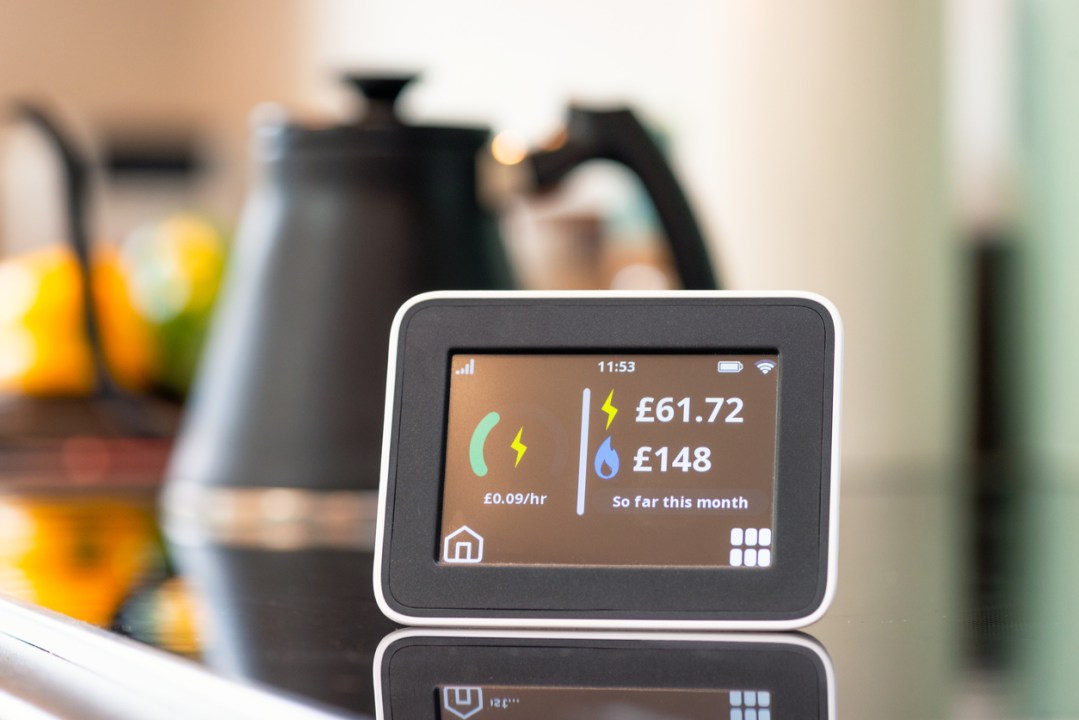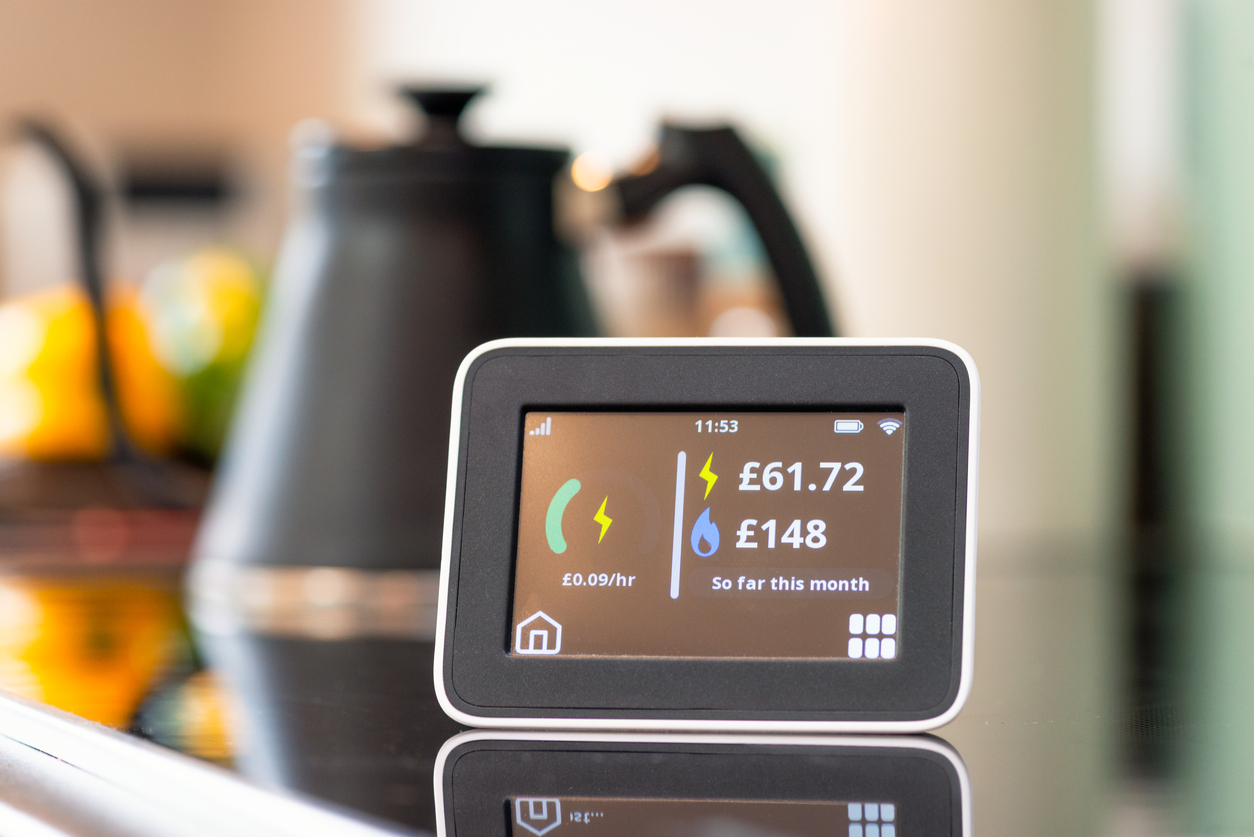Are you suffering from SMS? Smart meter stress, that is. When we decided recently to accept our energy provider’s offer to install a smart meter, I had no clue how anxiety-inducing the digital display on the little black monitor could be.
Smart meters tell us (and our suppliers) how much energy we’re using, minute by minute. In theory they make life easier, helping us identify where we can reduce consumption and sending automatic readings so that we’re less likely to underpay or overpay on our bills. There are already 29.5 million smart meters installed across the UK, and by the end of 2025 every home and office in Britain will have been offered one. But there’s a growing acknowledgement that many of us are experiencing heightened stress and anxiety because we’ve become obsessed with checking them.
Last month, a survey by Nationwide found that homeowners check their smart meter four times a day on average to keep tabs on soaring costs – with one in ten checking as often as ten times a day. And I’m one of them. Mine sits on the worktop in the utility room, so I see it repeatedly as I go to and from the washing machine, tumble dryer and fridge-freezer. While the dip in outside temperatures coupled with exorbitant energy bills may have persuaded many previously reluctant workers to return to their employer’s warm office, I don’t have that choice, having worked from home for almost 20 years. So it’s just me and the smart meter at home all day in our five-bedroom, four-bathroom barn conversion.
When I popped the heating on after dinner because my little boy has a nasty cold, the bill went up by another £4 in just over an hour
Once upon a time I’d have flicked the heating on without a thought to warm my office or ahead of my husband and son coming home from work and school. Now, though, watching the numbers tick up on the smart meter screen makes the heating feel like a costly indulgence – so my current daily work ‘uniform’ is multiple layers, thermal socks, slippers, a scarf, a hot water bottle on my knee and a fleecy blanket on top. I don’t drink tea or coffee, so I’ve taken to sipping mugs of hot water – although it appears to cost me around 5p a time to boil the kettle.
That kind of knowledge is what smart meters do for you. While ours has certainly made me conscious of our energy consumption in a positive way – I no longer have lamps on in an evening for atmospheric effect, and I stalk my young son around the house switching off lights in his wake – I can’t deny that it’s making me stressed.
When I started cooking dinner last night (admittedly with the underfloor heating on in the kitchen as the tiles are icy even in slippers), our daily energy consumption cost was £6.35. Within the hour, it had rocketed to £10.53. When I popped the heating on after dinner because my little boy has a nasty cold, that added another £4 to the bill for around 75 minutes – just enough to warm up his bedroom and bathroom so that he could shower and get into his pyjamas.
In a bid to reduce our costs, we’ve switched the radiators off in two of the bedrooms, the dining room and a downstairs bathroom, and rely on the log burner in the living room for evening warmth. The thermostat is nudged down by several degrees. I no longer put the washing machine or dishwasher on unless they are full to the brim, whereas once I’d wash with half a load rather than let the chores stack up. Roast dinners are off the menu for the foreseeable future as they require far too much use of the oven and hob.
But others are going much further: only recently a teacher at my son’s school confided that she goes to bed at 8 p.m. to keep warm rather than have the heating on. And as much as the numbers on the meter bother me, the more worrying thing is that we’re the lucky ones. Research indicates that many people risk depriving themselves of essential heat, light and warm food to keep bills down this winter, leaving children and adults cold and hungry. How can this be right in 2023?
As smart meter stress spreads, it’s small wonder that sales of the relatively economical electric blanket soared by 500 per cent in 2022. John Lewis reported an increase in demand of 100 per cent on the previous year, while Sainsbury’s sold one every 1.5 minutes during October.
Air fryers, microwaves and slow cookers are also being snapped up as households seek cheaper ways of cooking. Asda said sales of air fryers had increased 320 per cent year on year, while those of slow cookers had more than doubled. I’d been questioning the wisdom of my reliance on my slow cooker during the winter due to the fact that it has to stay on for hours at a time. But energy comparison site Uswitch estimates that using one for eight hours will cost £1.33. I can stomach that, but I will certainly double – or treble – the quantities I’m cooking so that additional portions can be frozen or reheated cheaply in the microwave.
I’m also investigating ways to avoid shivering at my desk all day, such as electric bootie-style foot warmers and heated seat covers to go over my desk chair. The trouble is that none of them can tackle cold fingers and noses. So I’m looking into whether a freestanding electric heater might be a cheaper way to warm my office. A good friend who also works from home has started using a heated portable clothes airer to take the chill off hers. Bought from Amazon for £60, it costs her around 5p an hour to run – although since she bought it in September the manufacturer has doubled its price.
Next up, I’ll be tackling appliances which are always on standby, namely the four TVs in the house. According to energy firm Utilita, on average British homes have ten unused items plugged in and switched on at the wall at any one time. Year-round this is estimated to cost £2.2 billion more than if these appliances were turned off at the plug.
But can any of this cure my smart meter stress? Countless friends have reported being similarly afflicted – including one who’s finally unplugged her smart meter ‘because I couldn’t cope with the constant stress’. It’s a hugely tempting move – and if the temperatures descend further, I may have to do the same, just so that I can put the heating on without the little black box watching me.







Comments